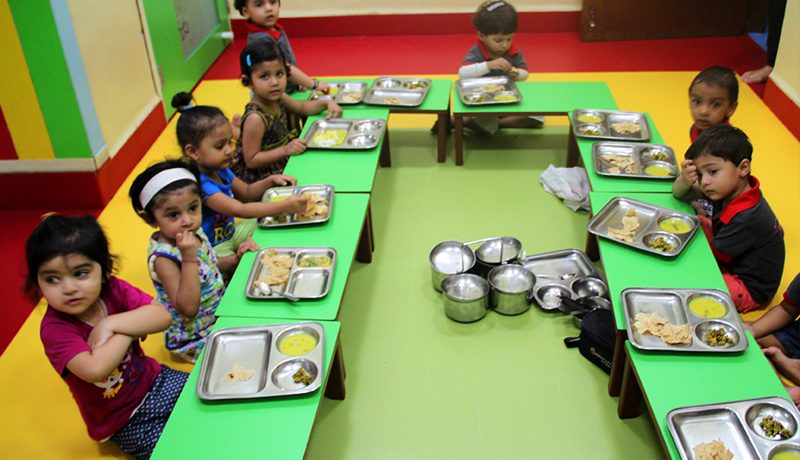Eating Habits in Children

Once you become a parent, an integral part of parenting is getting children started with good habits to help them grow up healthy. The first step towards growing healthy is adopting good eating habits and attitude.
In current times it is seen that the eating habits of children are major concern areas for many parents.
Therefore, deeper understanding of children’s eating habits and behavior is crucial to take care of their health. It is a proven fact that dietary habits acquired in childhood persist throughout the life. The eating habits that children inculcate when young serve as determinants of their health, weight and lifestyle as adults.
Planning is a very important step when it comes to the child’s health. This proactive parenting will help children attain skills that will ultimately help them succeed in school and in future. One extremely simple but important desirable habit that every parent should inculcate in their child is drinking milk.
Children should have full fat cow’s milk between the ages of 1 – 2 years. Semi-skimmed milk can be introduced after that. Skimmed milk doesn’t provide enough energy or vitamin A, so can be avoided. It is always advisable to consult pediatrician and nutritionists for authentic scientific guidance when not sure about the child’s nutrition.

However, there are many ways of encouraging your children to develop healthy eating habits in children:
Guide your family’s choices rather than dictate foods:
Make a wide variety of healthy foods available. This will help your children learn how to make healthy food choices.
Encourage your children to eat slowly:
A child can detect hunger and fullness better when eating slowly. Make sure children have children sized portions so they get the right amount of food for their age.
Involve your children in food shopping and meal preparation:
This will give you hints about their likes and dislikes, an opportunity to teach them about nutrition and provide them with a feeling of accomplishment. In addition, children may be more willing to eat or try foods they help prepare.
Plan for snacks:
Continuous snacking may lead to overeating but snacks that are planned at specific times during the day can be part of a nutritious diet without spoiling a child’s appetite at mealtimes. You should make snacks as nutritious as possible, without depriving your children of occasional chips or biscuits, especially at parties or other social events. Fresh or dried fruit, carrot sticks (for children over five years because of the choking risk in younger children) are a healthier choice than biscuits and sweets.
Discourage eating in front of the television:
Try to eat only in designated areas of your home, such as the dining room or kitchen. Eating while watching television may make it difficult to pay attention to feelings of fullness and may lead to overeating.
Encourage your children to choose water:
Over-consumption of sweetened and fizzy drinks has been linked to increased rates of obesity in children. Change to water, semi-skimmed milk (for children above two years of age) and diluted fresh fruit juice.
Never use food as punishment or reward:
Withholding food may lead children to worry that they won’t get enough food. For example, sending children to bed without any dinner may cause them to worry that they will go hungry. As a result, children may try to eat whenever they get a chance. Similarly, when foods such as desserts are used as a reward, children may assume these foods are better or more valuable than other foods. Telling children that they’ll get ice cream if they eat all their vegetables sends the wrong message about vegetables.
Make sure meals outside the home are balanced:
Find out more about your children’s school meals or pack their lunch to include a variety of foods. Also, select healthier items when eating at restaurants.
You can also read:
Developing Healthy Eating Habits in Your Children
Why is Nutrition So Important for Your Child





Developing healthy habits in our children from the early age is very essential.its our duty as a parent to make sure that we provide them balance and nutrient diet.well written blog.thanks for sharing
Well explained blog how we can encourage our child to develop healthy eating habits.thanks
Superb Blog. Children indeed get super fussy about food and it’s very important to handle it correctly and not make it as a punishment or reward. Very well written
Vrry well written blog
The first step towards growing healthy is adopting good eating habits. Dietary habits acquired in childhood persist throughout the life.
So as a parent, we have to encourage our child to eat fresh, healthy and nutritious food by providing them variety of nutrition food choices instead of any bribe of bakery product or ice cream .
Very well said in the blog “It is a proven fact that dietary habits acquired in childhood persist throughout the life. The eating habits that children inculcate when young serve as determinants of their health, weight and lifestyle as adults”
We can encourage our little ones to develop healthy eating habits by following the points mentioned in the blog. Thank you Jumpstart for this wonderful blog
Very nice and useful blog. Nice tips mentioned about how to encourage children and how we play a major role in developing healthy food habits. Thankyou for sharing such an important topic and giving ideas.
Very nice blog. Tips on developing healthy eating habits are very helpful. Thank you for sharing this information.
Such an informative blog and super helpful too. Educating children on healthy eating during childhood helps them make healthier choices as they become adults. Great tips shared.
Thank you for this blog. Been very helpful in encouraging my young one to eat healthy.
Amazing blog. Very helpful tips
Amazing blog. It is really very important to encourage children to develop healthy eating habits and the tips shared in the blog is really very helpful.
Thank you Jumpstart for sharing.
Thank you for this blog. Been very helpful in encouraging my young one to eat healthy.